Wendy Brightbill – Deeper Still
$54.00 Original price was: $54.00.$15.00Current price is: $15.00.
Proof of item:
Why is abstract painting important work? How do you make a deep emotional connection with your work? How do you find your own rhythm and language when you sit down to paint? How does painting help you move through grief or healing or growing pains? How do you know what needs to come out of you?
Abstract painting is unique, in that, it removes the need to be anything. There is so much more freedom to explore a theme that is calling to you. You must connect with your work on an emotional level to some degree or it doesn’t work. This isn’t necessarily true of other genres. I can paint a landscape and be completely indifferent about it. But when I paint an abstract painting, I have to be all in.
I think THIS is what scares us the most about abstract painting. We have lost our creative voice along the way and we don’t know where to find it. We don’t even know how to find our creative voice because it requires quiet and slowing down to listen. And we are a culture addicted to busy. It can be extremely uncomfortable to get quiet.
I believe that it was Sabrina Ward Harrison who said that we paint the thing that we need the most. I believe this to be true in my life. During certain seasons, I feel the need to paint different types of paintings. For example, I feel the need to paint with a lot of white paint and negative space at the moment. I want light whispers and delicate lines. I think that this is because I want to give myself room to breathe and heal. But a year ago, I wanted to paint with a whole bunch of dark colors because I was looking for something to ground myself. If I don’t listen to the thing that is calling me forward, then I won’t have an emotional connection with my art.
I would suggest that if abstract painting hasn’t worked for you, it might be because you only have ever copied someone else’s expression or process. You have missed the most important part of abstract painting, a deep emotional connection to your work. And I want to help you find that connection!
During this course, I want to model for you how you can make this emotional connection in order to make your most important work. It’s about pursuing a feeling, not ever arriving, but loving the process.
Are you all in?
Join me for… Deeper Still: An Invitation to Abstract Painting
There are three parts to the course: Inner Workings, Process and Art Lab. I wanted to come at abstract painting from several different directions, because there is so much that goes into creating a dynamic abstract painting.
Inner Workings is the passionate drive that is happening behind the scenes. This section is the part where I discuss WHY I feel drawn to create certain types of work. If you feel overwhelmed by this soul work, it’s okay. Making these connections doesn’t happen overnight. I painted for years before I really understood why I felt the need to paint certain things. But even now, I don’t always know why I feel drawn to paint in a certain way. There is a mystery to it all because art should always flow from your gut. I can’t explain it other than a deep knowing. But the important part is to just start following the hints when you are creating. For example, what type of artwork are you drawn to? What process have you fallen in love with and why? What feels the most satisfying when you are painting? What is inspiring you today? What color are you continually being drawn to?
PLEASE NOTE: This is not a static concept!!! It’s constantly changing and evolving. The things that I felt drawn to paint yesterday, may not be what I need to paint today. In order to be a creative person, you have to be willing to move and grow and change. This is the essence of abstract painting, in my honest opinion.
Also, you don’t need to have some big powerful why to start your creative practice. You discover it along the way!!! That is the coolest part of painting abstracts. It doesn’t need to be anything. Sometimes it’s just about the joy that you get smooshing paint around on the canvas. JUST BEGIN!!!
Process is the part of the course where I let you watch as I create pieces that I feel drawn to paint. This section is the HOW do I move through a painting. This is where I give you a peek at how I approach each piece of abstract painting. This is where you get to see techniques in action to put together a whole painting. There is very often a struggle that happens throughout the process of painting. Sometimes I begin with a very specific intention, but struggle to meet it. This is where the editing process comes into play. Where does this piece fall short? How can I make it better? Do I need to come to terms with the fact that this piece doesn’t meet the intention that I started with? Does the painting just need to be something else? Then I often move into a revision stage so that I can start again with a revised intention. What was the last piece lacking? How can I start again? For example, does the piece need to be more simplified? Do you feel drawn to more subtle line work? Does it need to be bolder? And in this way, you are already onto the next piece.
Art Lab is the part of the course where I give you some tools. This section is the part where I give you the WHAT of mixed media painting. I have never done a separate section like this before where I break down for you some of the basic steps and techniques that make up my pieces. This section is designed especially for beginners to mixed media art. This is also for people who learn better by seeing all of the individual steps that might go into any particular painting. What I love about breaking it down in this way, is that you can then take different elements and combine them in infinite combinations. This way, you can take elements that you love and make them your own. Ultimately, the goal is to get you painting in a way that feels organic to you! Please be patient if you are just beginning on this journey. It takes time to find your creative voice. We are all at different points in our creative journey!
I believe that we all have a unique expression of creativity. One that is divinely unique. It’s part of our DNA. And I believe that if you are willing to get quiet and listen, then you will be able to tap into the still small voice that will move you closer into that expression.
Inner Workings
- Intentions
- Exploring Themes
- Starting Points
- Editing Pieces
- Revise and Begin Again
Process
- Transparency and Movement
- Messy and Expressive
- Painting Joy
- Abstract Floral (Letting a Piece Evolve)
Art Lab
- Basic Mixed Media Techniques
- Mark Making
- Layers
- Prompts
- Guided Painting
Materials and Supplies
- Aquabord
- Canvas paper
- Watercolor canvas
- Mixed media paper
- Watercolors
- Acrylic paint in high flow and heavy body
- Gel pens (especially white)
- Favorite mark making tools (pastels, nupastels, inktense pencils, acrylic markers, neocolor ll…)
- Acrylic inks
- Paint brushes
- Palette paper
- Watercolor palette
- Glazing medium for acrylics
- Tissue paper
- Matte medium
*Please note: you don’t need every single one of these supplies to participate in the course. Use your favorite art supplies.
Course Curriculum
Welcome
StartGetting ready for Deeper Still!
StartIntroduction and Supplies (72:48)
StartClass Outline and Description
Inner Workings
StartIntentions (19:42)
StartExploring Themes in Your Work (37:32)
StartThe Editing Process (12:41)
StartThe Starting Place (23:43)
StartRevise and Begin Again (15:14)
Process Videos
StartWatercolor Painting (141:50)
StartMessy & Expressive (88:30)
StartPainting Joy (34:59)
StartAbstract Floral (50:20)
Art Lab
StartBasic Techniques (52:27)
StartMark Making (27:09)
StartPrompt- Contrast (4:40)
StartPrompt- Subtle and Monchromatic (4:57)
StartGuided Painting (38:15)
1 review for Wendy Brightbill – Deeper Still
| 5 star | 100 | 100% |
| 4 star | 0% | |
| 3 star | 0% | |
| 2 star | 0% | |
| 1 star | 0% |
Sorry, no reviews match your current selections
Q & A
Related products
Personal Development
Personal Development
Personal Development
Personal Development
Personal Development
Personal Development
Personal Development
Personal Development
Move into Life: The Nine Essentials for Lifelong Vitality – Anat Baniel

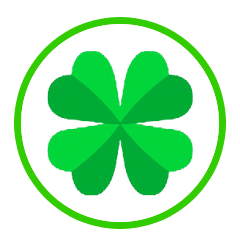
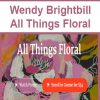
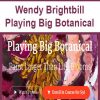
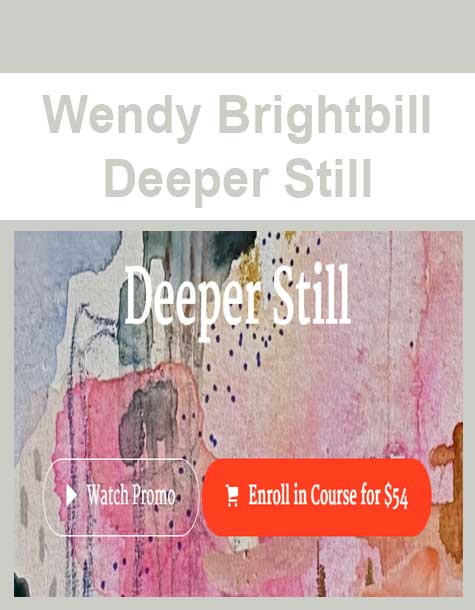




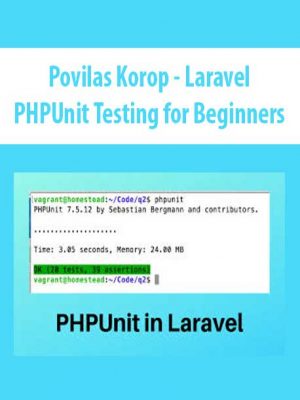
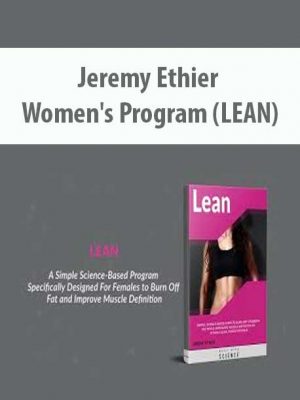
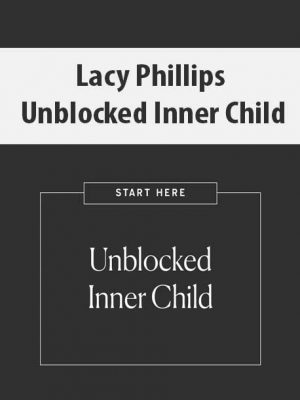
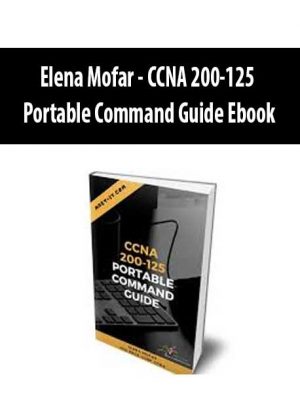
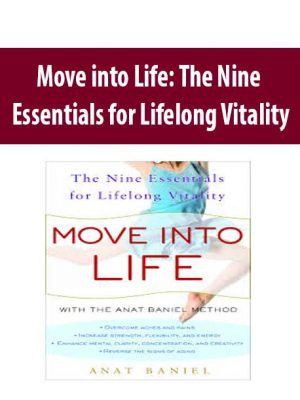
As expected | Wendy Brightbill – Deeper Still